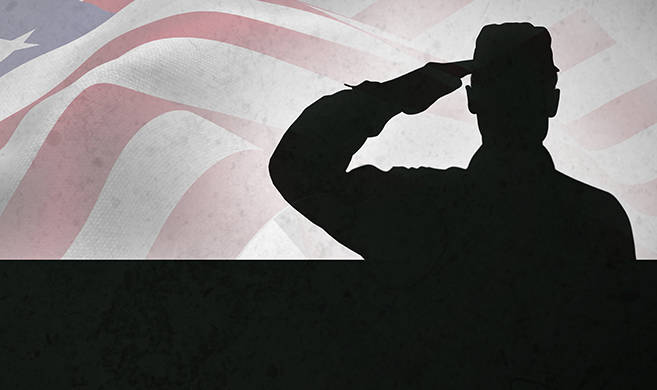In the 1980’s, 59% of firms listed in Standard & Poor’s 500 Index were headed by ex-military CEOs. As veterans of WW2 and the Korean War have retired, this number has declined steadily, but is still substantial with 8.4% in 2006. There is also a continuous trend of firms targeting former military personnel as new hires. We hypothesized that those in the military are less likely to break rules because the military instils certain values in its members such as loyalty, integrity and obedience.
Tracking fraud
In order to examine the impact that a past in the military may have had on a CEO’s likelihood of committing fraud, we analysed a dataset of fraud cases among firms included in the Standard & Poor’s 1500 index during the years 1992 to 2011. This dataset includes 103 actual cases of fraud matched to 103 firms which are in the same industry and have a similar size but at which fraud did not occur in a given year. This matching procedure helps us to rule out alternative explanations for our results such as difference in firm size or industry. We further controlled for a range of factors including firm performance, the age and tenure of the CEO, their education, the size of the board, whether or not the CEO is also the chairman of the board and how many independent directors serve on the board of directors. In this dataset of 206 firms, 32 (15.53%) of CEOs have served in the military.
Less fraud with ex-military CEOs... but why?
Our findings for this dataset suggest that the odds of observing a case of fraud was 63% lower if the firm is headed by an ex-military CEO.
The odds of observing a case of fraud was 63% lower if the firm is headed by an ex-military CEO.
Our data clearly shows a link between reduced risk of fraud and a past in the military. However, it is of course possible that military CEOs are simply more adept at not getting caught with their hands in the cookie jar. In order to help rule out this possibility we looked at another dataset that pointed to CEOs whose numbers appeared to be too good to be true. For this, we used a dataset of “lucky option grants” containing 1,265 CEOs at firms included in the Standard & Poor’s 1500 index between 1996-2005. Of those 1,265 CEOs, 213 (16.84%) served in the military.
A “lucky option grant” means that at least one of the potentially many options grants a CEO received in a given year was granted on the day with the lowest stock price of the month. If a month has about 20 trading days (30 days minus weekends and holidays), the likelihood of observing an option grant being given to a CEO on the day with the lowest stock price should be 5% (1/20).
Suspicious numbers... but less so with ex-soldiers
We found that the likelihood of observing a lucky grant for a given CEO in a given year is in fact 10%, double the number that it should be due to chance. Hence, it is likely that about half the grants in our dataset were backdated, meaning the date the option grant was given to a CEO was subsequently changed to the day with the lowest stock price of the month. For this dataset, we found that when a CEO had served in the military, the likelihood of observing a lucky grant was 7.11% instead of 9.9%, suggesting CEOs were less likely to commit fraud even when there wasn’t a high risk of being caught. The loophole that allowed CEOs to profit from fraudulently backdating their stock options has since been closed.
A surge of interest in ex-military CEOs...
Interestingly, two teams of scholars started studying military CEOs at around the same time as we did. Their findings complement ours. Benmelech and Frydman (2015) have found that military CEOs are more fiscally conservative and Law and Mills (2017) found that military CEOs are less aggressive in their tax avoidance.
Complementary research shows that military CEOs are more fiscally conservative and that military CEOs are less aggressive in their tax avoidance.
...and their good behavior
Together the research suggests two possible explanations for the link between CEO’s military past and good corporate behaviour. One is that certain types of people apply for the military and these people are more likely to follow rules and regulations. Another is that the military instils good behaviour on those who pass through it.
To be sure that our results are not solely driven by more rule abiding people enrolling themselves into the military, we used the fact that the probability of being drafted into military service differed by birth cohort due to the heightened demand of age‐eligible men during periods of war. For example, 50 to 65 percent of men born between 1931 and 1936 were likely to serve in the Korean War. This number is significantly lower for men born just before or just after this time period. As we do not expect that birth cohort per se will affect fraudulent behaviour, we can use measures for birth cohorts to test if service in the military leads to less fraud. Indeed, this is exactly what we find.
Part of the effect stems from the military instilling certain values in its personnel.
Of course, this does not mean that people enrolling into the military do not differ from their peers who do not enroll. Rather, it would seem likely that a combination of both these factors is responsible for the overall effect of ex-military CEOs being less likely implicated in cases of corporate fraud. What we can say with confidence is that part of the effect stems from the military instilling certain values in its personnel.









